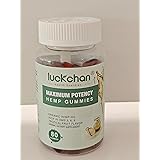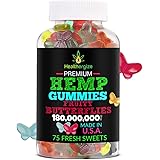The role of CBD for anxiety is a topic of significant contemporary interest, especially as anxiety has emerged as a pervasive challenge across modern societies. As the accompanying video highlights, anxiety has reached epidemic proportions, impacting millions globally; approximately 60 million people in Europe alone struggle with anxiety, and it affects a substantial 20% of the population within the United States. These figures underscore the urgent need for effective, scientifically-backed approaches to manage anxiety symptoms, prompting deeper investigation into natural compounds like cannabidiol (CBD). This growing body of research suggests that CBD may offer a promising avenue for mitigating the complex manifestations of anxiety, providing a much-needed natural option for those seeking relief.
1. Deciphering the Science Behind CBD and Anxiety Management
Scientists and researchers are actively exploring how CBD for anxiety functions within the human body, particularly focusing on its interactions with various physiological systems. Unlike many other natural compounds, CBD research has progressed beyond rudimentary animal studies to include compelling human trials, offering a more direct understanding of its potential therapeutic effects. While many of these studies are not yet double-blind, placebo-controlled trials—considered the gold standard in medical research—the existing data provides significant insights into CBD’s efficacy and mechanisms. This initial wave of human-centric research is crucial for establishing a foundational understanding of CBD’s role in mental well-being.
One of the most noteworthy areas of inquiry has centered on CBD’s impact on social anxiety disorder (SAD), a condition characterized by intense fear in social situations. Researchers have conducted various observational studies and controlled experiments to assess CBD’s potential benefits in such scenarios. These investigations aim to evaluate how CBD might influence the acute physiological and psychological responses associated with social apprehension. The findings from these studies are steadily building a clearer picture of CBD’s therapeutic potential within specific anxiety contexts, fostering optimism for its broader application.
2. Illuminating Research Findings: The Public Speaking Test
A compelling real-world example illustrating CBD’s impact on anxiety involved a simulated public speaking assignment, a common trigger for social anxiety. In this experiment, participants were divided into two groups: one receiving CBD and the other a placebo. The task required individuals to deliver a speech, thereby inducing a situation known to elevate stress and apprehension levels. This carefully designed setup allowed researchers to directly observe and quantify the effects of CBD on anxiety symptoms in a controlled, yet realistic, environment.
The results of this specific study were quite remarkable and provided strong empirical evidence supporting CBD’s anxiolytic properties. Participants who administered CBD reported a significant reduction in subjective feelings of anxiety compared to the placebo group. Furthermore, the CBD group exhibited fewer instances of cognitive impairment, such as difficulty concentrating or racing thoughts, which often accompany high-stress situations. Critically, these individuals also experienced fewer speech problems, including stuttering or verbal blocks, demonstrating an overall improved performance under pressure. Conversely, the placebo group generally performed worse across these metrics, experiencing heightened anxiety and associated difficulties, thereby accentuating the observed benefits of CBD.
3. Molecular Pathways: How CBD Interacts with Serotonin Receptors
Beyond observable behavioral changes, understanding the molecular mechanisms through which CBD helps anxiety is paramount. One key pathway involves CBD’s interaction with the brain’s vast network of serotonin receptors, particularly the 5-HT1A receptor. Serotonin, often dubbed the “feel-good” neurotransmitter, plays a critical role in regulating mood, sleep, appetite, and stress responses. Dysregulation in serotonin levels or receptor function is frequently implicated in mood disorders, including anxiety and depression.
CBD acts as a partial agonist at the 5-HT1A receptor, meaning it binds to and activates this receptor, albeit not as strongly as serotonin itself. This interaction can modulate serotonin signaling, potentially leading to an anxiolytic effect. By enhancing serotonin activity in specific brain regions, CBD may help stabilize mood, reduce feelings of apprehension, and promote a sense of calm. This mechanism positions CBD as a valuable compound for addressing the neurochemical imbalances often associated with chronic anxiety, supporting overall mental equilibrium.
4. Endocannabinoid System Enhancement: Boosting Anandamide Levels
Another fascinating mechanism through which CBD addresses anxiety involves its influence on the body’s endogenous cannabinoid system, known as the endocannabinoid system (ECS). The ECS is a complex cell-signaling system that plays a crucial role in regulating a wide range of functions and processes, including mood, memory, sleep, appetite, and stress response. It produces its own cannabis-like molecules, called endocannabinoids, with anandamide being one of the most significant.
Anandamide, often referred to as the “bliss molecule,” is a naturally occurring endocannabinoid that contributes to feelings of well-being and happiness. Scientific observations have consistently noted depleted levels of anandamide in individuals suffering from conditions like depression and anxiety, suggesting its critical role in mental health. The body typically produces anandamide on demand, and it is swiftly broken down by an enzyme called fatty acid amide hydrolase (FAAH).
Intriguingly, research indicates that CBD does not directly increase anandamide production but rather inhibits the activity of the FAAH enzyme. By blocking FAAH, CBD prevents the rapid degradation of anandamide, allowing this beneficial endocannabinoid to remain active in the body for longer periods. This extended presence of anandamide can lead to sustained positive effects on mood and a reduction in anxiety and stress levels. This indirect boosting of our natural endocannabinoid tone through FAAH inhibition represents a sophisticated mechanism by which CBD may help in mitigating anxiety symptoms, harnessing the body’s inherent capacity for self-regulation.
5. Navigating the Future of CBD for Anxiety Relief
While the existing scientific consensus does not yet claim that CBD offers a definitive cure for anxiety, the growing body of research unequivocally points towards its potential as a powerful tool for symptom mitigation. The findings from human studies, particularly those concerning social anxiety and public speaking, offer tangible evidence of CBD’s ability to reduce feelings of apprehension, cognitive impairment, and speech difficulties. These empirical observations are further supported by a robust understanding of CBD’s molecular interactions, including its modulation of serotonin receptors and its pivotal role in enhancing endocannabinoid tone by inhibiting the FAAH enzyme. Such multifaceted actions suggest that CBD for anxiety operates through several synergistic pathways.
As scientists continue to delve deeper into the complexities of the endocannabinoid system and the therapeutic properties of cannabinoids, the potential applications for anxiety management become increasingly clear. The ongoing research is progressively refining our understanding of optimal dosages, delivery methods, and specific anxiety phenotypes that might benefit most from CBD. This promising outlook positions CBD as a significant natural option for individuals seeking to manage their anxiety symptoms more effectively, making life less cumbersome and more manageable.
Calming Your Concerns: Your CBD for Anxiety Q&A
Why are people interested in using CBD for anxiety?
Many people are looking for natural ways to manage anxiety, and research suggests CBD may help reduce anxiety symptoms. It’s seen as a promising natural option for relief.
Have scientists studied CBD for anxiety?
Yes, scientists are actively studying CBD for anxiety, including human trials. These studies have provided insights into how CBD might help with conditions like social anxiety.
How might CBD interact with the brain to help with anxiety?
CBD interacts with the brain’s serotonin receptors, which are important for regulating mood. By influencing these receptors, CBD may help stabilize mood and reduce feelings of apprehension.
Does CBD affect the body’s natural ‘bliss molecule’?
Yes, CBD helps by preventing the breakdown of anandamide, often called the ‘bliss molecule,’ which is a natural compound in your body linked to feelings of well-being. This allows anandamide to stay active longer, potentially reducing anxiety.











